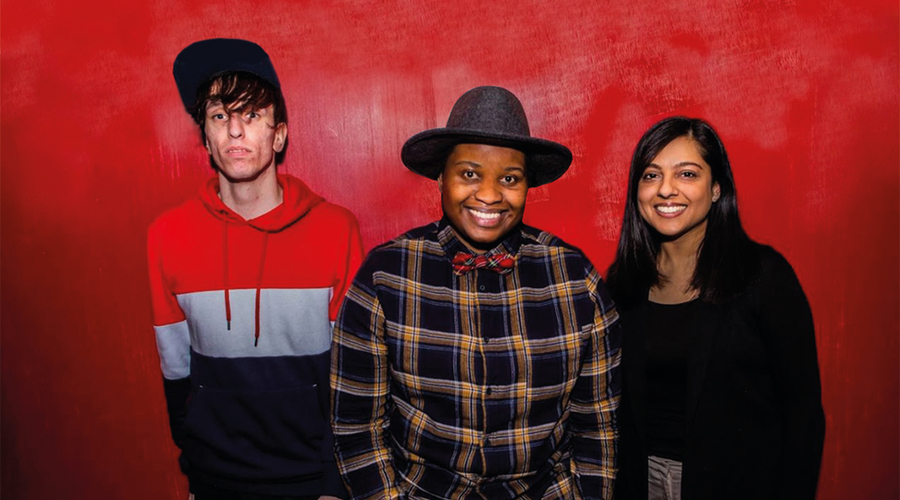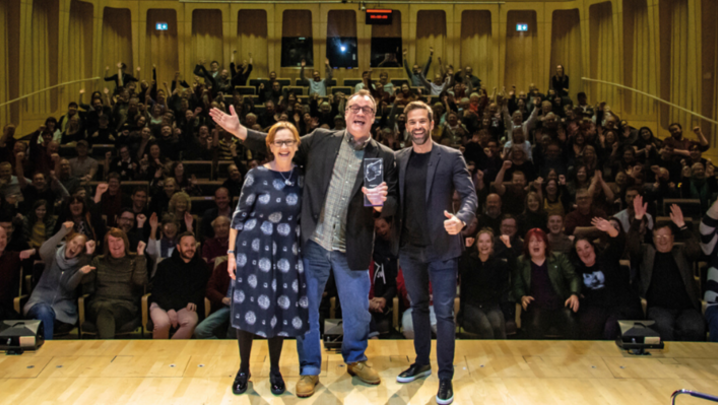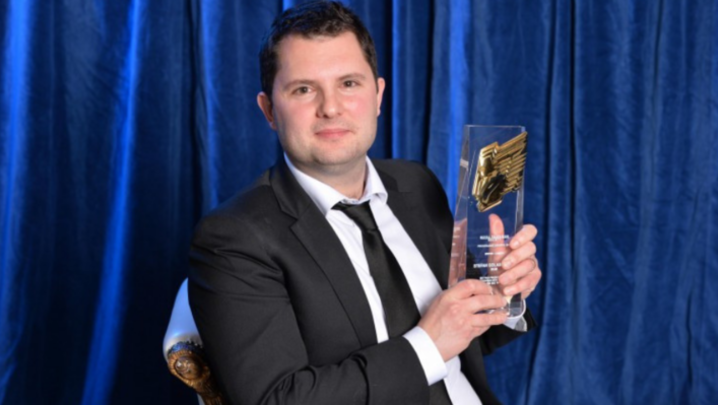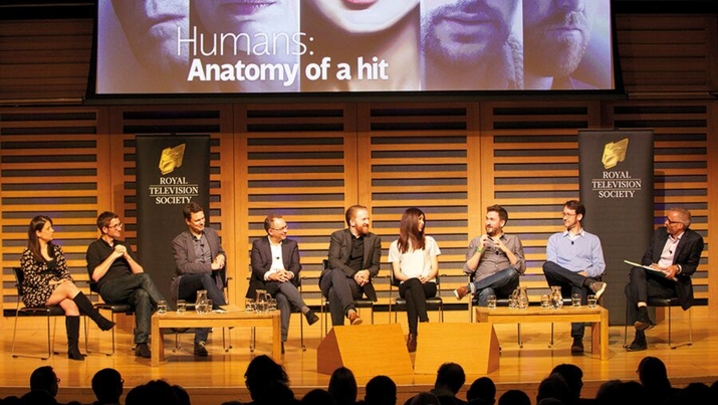Kudos and the Royal Court Theatre are nurturing young dramatists from under-represented backgrounds, discovers Steve Clarke
At a time when there is growing evidence that television is dominated by people at the upper end of the social scale, a new writing scheme hopes to break though the medium’s so-called “class ceiling”. With luck, it may also broaden the range of voices heard across TV drama.
“For some time, we at Kudos have been looking for a way to put our money where our mouth is in order to help tackle the ‘class-ceiling’, which is such a pervasive obstacle to the flourishing of new talent in our industry,” says Martin Haines, Managing Director at Kudos, the production company behind such acclaimed dramas as Broadchurch, Tin Star and Utopia.
"It has never been more important to find and tell original and distinctive stories"
“There is a lot of excellent work to support diversity in writing,” he says. “But, all too often, the structural barriers to success and the extent to which lack of opportunity and financial disadvantage play their part are overlooked.
“It is our belief that, in an overcrowded content marketplace and against the backdrop of an increasingly splintered society, it has never been more important to find and tell original and distinctive stories from parts of the UK not often seen on our screens.”
Haines emphasises: “People who are successful in television, not just writers, but people who are in front of and behind the camera, tend to come from the same social backgrounds.
“They have pathways that are easier than for those people who live outside London and who come from social and economic backgrounds where a career in television is not on their radar.”
With this in mind, in collaboration with London’s Royal Court Theatre, renowned for championing new talent, Kudos has set up a bursary scheme aimed at nurturing young writers from under-represented groups.
“We were thrilled that if we could join forces with the Royal Court and put it under a joint banner, we would be able to cast the net wide and use that public profile to unearth some gems,” says Haines.
And so it has turned out. The joint Kudos Royal Court fellowship was launched last October. It was targeted at writers already establishing a writing career, but who perceived road blocks to getting their work developed and produced in theatre and television due to class, disability, education, ethnicity, gender identity, geography or other issues.
A month later a selection panel comprised of executives from Kudos and the Royal Court read hundreds
of new scripts in order to choose the winners of the three bursaries. The scheme had been advertised in the trade press and on social media.
The eventual shortlist of 13 was given to Kudos creative chief, Karen Wilson, and the Royal Court’s artistic director, Vicky Featherstone, who chose the three fellows – Rabiah Hussain, Lettie Precious and Ross Willis.
Hussain is a writer and poet. Her debut full-length play, Spun, premiered at the Arcola Theatre in July 2018 and her short plays and monologues have been part of programmes with Theatre Absolute, The Bunker Theatre and Rada.
Precious is a playwright, poet, author and artist. Having quit nursing to concentrate on writing, Precious became active in the theatre industry, won the Best New Artist Award at Museum of the Mind in 2016, and became a published author in 2018.
Willis is a member of the Orange Tree Writers Collective, BBC Writers Room and a playwright on attachment at the Bristol Old Vic. He was the writer in residence at Theatr Clwyd and is an alumnus of Tamasha Playwrights and Soho Theatre Writers Lab, where he developed Wonder Boy, which was produced by Bristol Old Vic Theatre School.
“Rabiah, Lettie and Ross stood out. Each of them delivered an incredibly strong piece of work that spoke to the judges and Vicky and Karen. They were very personal stories,” says Haines.
“They were relatable, authentic and deeply personal stories that grabbed us by the throat and demanded attention.
“The writing jumped off the page because it was so immediate and personal. That was exciting for us. It was why we wanted to do this scheme in the first place.”
The Kudos MD points out that today new writers who want to work in TV often face significant challenges. Overall, there’s more drama being transmitted, streamed or downloaded than ever before. But the kind of shows that were once available for rookie writers to cut their teeth on – long-running series such as ITV’s The Bill have long since disappeared.
Then there is the question of making ends meet. Writing can be a fickle and unremunerative job. Aspiring writers often find themselves holding down one or even two jobs, while trying to build a career as a writer.
Haines says: “It sounds remarkable to people who don’t have to struggle in this way. If you’re a writer working at a day job or doing night work, working irregular hours on a zero hours contract, or you’re out of work and finding it difficult to feed yourself, it’s extremely difficult to think about taking your writing seriously and take it forward.”
The bursaries give each writer a sum roughly equivalent to the London living wage – £10,000 for six months – plus travel and accommodation support, and a tailor-made programme designed by Kudos and the Royal Court.
“The Kudos creative team, led by Karen Wilson and Sarah Stack, have devised a bespoke package of ‘experiences’ for each fellow, focusing on any gaps in their skills and on areas the fellows themselves are keen to develop in relation to television writing,” Haines explains.
“Lucy Davies [executive director at the Royal Court] and Vicky have done the same in relation to their theatre work. We hope the combination will act as an incubator to accelerate their massive potential.” In this context, it’s important to remember that many of television’s greatest writers, be it David Hare or Alan Bennett, have always switched between stage and screen.
The three are spending time with all departments at Kudos and the Royal Court, shadowing colleagues, observing rehearsals, attending first previews and visiting TV sets.
There will be opportunities to participate in monthly workshops run by leading creatives in theatre and TV, attend script meetings at the Royal Court and development meetings at Kudos, and have time and space to develop their own projects.
All concerned were determined to make the scheme as unprescriptive as possible. “Often, you will get schemes or programmes like this which are a bit more prescriptive,” says Haines. “Production companies like to know there will be a script or two they can get their mitts on at the end of process.
“We want our approach to be different to that. The fellows take ownership of what they want to get out of it. Hopefully, at the end of six months they will have enjoyed working with us and we will be in a position to explore how that relationship will develop further.
“We want to create an enlightened space where people can find their feet and work out what it is that they want to do.”
So, ideally, in two or three years’ time, the three will be writing commissioned scripts? “Absolutely. We hope this will be a massive accelerator of their careers. We want them to come out feeling more confident and clearer about what they want to spend the next couple of years doing with their writing, be that in theatre or TV, or both. It’s the start of a relationship for all of us.”
What, then, of the future? Is the initiative a one-off or might it become something of a permanent fixture? “We will do it again if we find it’s been useful,” says Haines. “It would be our intention to run it again with the Royal Court if it goes well this time. We’re only in the first month of the first year. We need to see how it turns out. But, so far, so good.”
And maybe this unique collaboration between one of British TV’s best drama producers and London’s leading supporter of innovative stage writing will enrich TV drama in the years to come. It might even nurture the next James Graham, Kay Mellor or Sally Wainwright.







